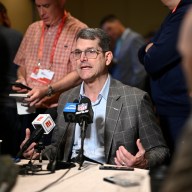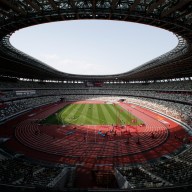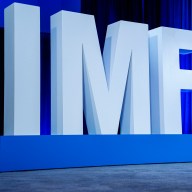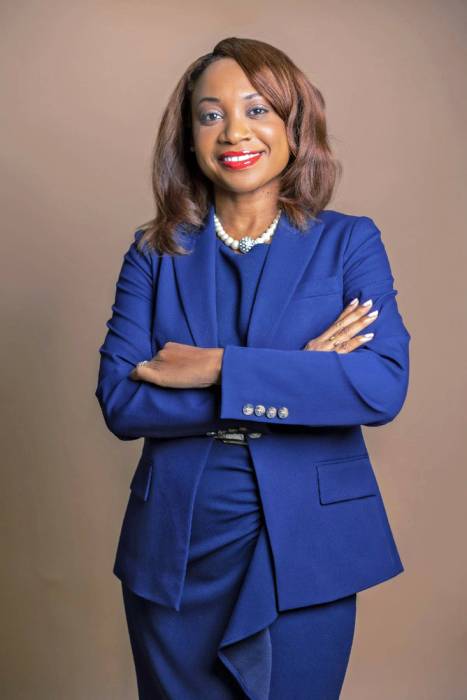By Corina Pons
MERIDA, Venezuela Reuters) – A dozen doctors hold a hunger strike in the corridors of an Andean city hospital. In another provincial city, hundreds of protesting medics suspend appointments. In the capital, staff from a pediatric hospital wave placards at the entrance to a hospital pleading for aid.
Not usually active in politics, many of the OPEC nation’s 40,000 doctors are becoming increasingly militant over drastic shortages of medicines, equipment and personnel amid a punishing economic crisis. With eight out of 10 medicines now scarce, according to the main pharmacy group, protesting doctors are demanding that President Nicolas Maduro’s socialist government declare a national health crisis and allow foreign humanitarian aid. “I started to see patients, both in the operating theater and in the emergency ward, dying for lack of medicines,” said David Macineiras, a 30-year-old orthopedic surgeon and one of 12 doctors who went on hunger strike at the main state hospital in the western highland city of Merida. “They arrive in bad conditions and we can’t even get adrenaline to deal with a cardiac arrest,” he said, describing the case of a woman who died for lack of adrenaline. Macineiras himself was hospitalized for four days after his hunger strike. The protests involve a small percentage of doctors, in part because medics – especially younger ones – depend on the state to complete their residencies and studies and so have good reason to avoid conflict. Doctors who hold high-ranking positions in public health acknowledge there are problems, but insist that none are sufficiently severe as to put patient lives at risk.
Christian Pino, a surgeon at the Merida hospital who also joined the strike, insists the opposite is true.
He recently operated on an elderly woman who due to chronic hospital shortages had to bring her own supplies, including saline solution. It ran out before the operation finished.
“In post-op, we didn’t have any serum to hydrate her, so the patient died,” he said at the hospital where stretchers packed corridors and incubators stood abandoned with handwritten signs saying they were out of service. In June, Pino read a list of doctors’ demands in Venezuela’s National Assembly before the opposition-led legislature declared a state of medical emergency and approved channels for foreign humanitarian aid. “I prefer to raise my voice with my colleagues than be an accomplice to this,” Pino said.
But the government-leaning Supreme Court shot down the assembly’s proposal. Government officials deny Venezuela is facing a humanitarian crisis and say there is no need for humanitarian assistance. Maduro is fiercely proud of health advances under the 1999-2013 rule of socialist leader Hugo Chavez, and he says adversaries are exaggerating the problems now.
“There is no humanitarian crisis, I say it with absolute responsibility,” Foreign Minister Delcy Rodriguez recently told an Organization of American States meeting on Venezuela.
DEPRESSING DATA
Up-to-date data is hard to find, but what little is available points to a severe deterioration.
Health ministry statistics show that in 2015 for every 100 people discharged from state hospitals, 31 died – a rate six times higher than the previous year. Infant mortality was 2 percent of births last year, 100 times worse than 2014. It is a huge challenge for the ruling Socialist Party which, under Chavez, ran enormously popular free health projects such as Cuban-staffed clinics in the slums but is now finding its welfare programs stretched. According to the World Health Organization (WHO), Venezuela and Guyana were the only countries in South America to see maternal death rates worsen last year.
Health Minister Luisana Melo recently recognized health sector problems but said authorities are working to reduce the rates of infant mortality and death during childbirth.
She said shortages only affect around 15 percent of medicines and that Venezuelans tend to consume more medicine than they need to.
The government says a U.S.-backed “economic war” by political opponents and hostile business groups has caused the crisis, exacerbated by a plunge in the price of oil, which accounts for 95 percent of export revenues. Huge lines snake around most pharmacies from before dawn, with some people staying all night to stake a place. Rowdy scenes are common, and soldiers guard the crowds.
In Merida, orthopedic surgeon Carlos Hidalgo said he joined the hunger strike after a patient arrived with an open fracture of the tibia and femur and there was no saline solution to clean the wound. “They went to a kiosk and bought water to wash him with that,” he said. An infection set in and the patient’s leg was amputated.
“That’s why we protested, not because of our working conditions,” said Hidalgo, who makes 16,000 bolivars a month, equivalent to about $25 at the weaker of two official exchange rates and just $16 on the black market. Some doctors are also worried about their legal liability. Medics in the city of Barquisimeto decided to ask patients’ relatives to sign a permission slip acknowledging the poor conditions they were working under. At hospitals there, medics have held two strikes this year. Surgeries were halted on a recent day due to lack of gloves.
Idabelias Arias, the head of the emergency ward at a pediatric hospital in Barquisimeto, has had to use basic CPR (Cardiopulmonary resuscitation) to revive children for lack of adrenaline. “Doctors are doing war medicine here.” (Writing by Andrew Cawthorne; Editing by Kieran Murray)

















